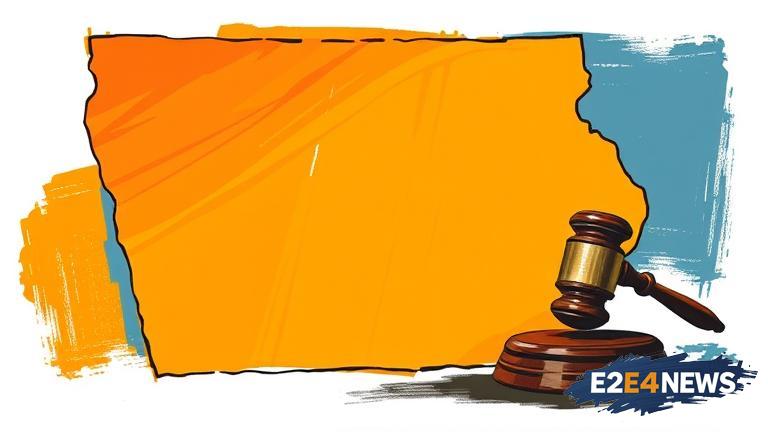Iowa is grappling with a significant attorney shortage, which has left many residents without access to legal representation. The shortage is particularly pronounced in rural areas, where it can be challenging to find lawyers willing to practice. However, a potential solution to this crisis may lie in the use of paralegals. Paralegals are trained professionals who can perform many tasks that were previously the exclusive domain of lawyers, such as drafting documents, conducting research, and assisting with trial preparation. By leveraging the skills of paralegals, Iowa may be able to increase access to legal services and reduce the burden on its overworked attorneys. One of the primary benefits of using paralegals is that they can provide high-quality legal support at a lower cost than hiring a lawyer. This can be especially beneficial for low-income individuals and families who may not have the means to afford traditional legal representation. Additionally, paralegals can help to streamline the legal process, reducing the time and expense associated with many legal tasks. Despite the potential benefits of using paralegals, there are still some challenges that must be addressed. For example, paralegals are not licensed to practice law in the same way that attorneys are, which can limit their ability to provide certain types of legal services. Furthermore, there may be concerns about the quality of work performed by paralegals, particularly if they are not properly trained or supervised. To address these concerns, Iowa may need to establish clear guidelines and regulations for the use of paralegals in the legal system. This could include requirements for paralegal training and certification, as well as standards for the supervision and oversight of paralegal work. By taking a proactive approach to addressing the attorney shortage, Iowa can help to ensure that all residents have access to the legal services they need. This may involve investing in paralegal training programs, as well as promoting the use of paralegals in rural and underserved areas. It may also require changes to the state’s laws and regulations, such as allowing paralegals to provide certain types of legal services that are currently reserved for attorneys. Ultimately, the key to solving Iowa’s attorney shortage will be finding innovative and effective ways to increase access to legal services. By exploring the use of paralegals and other alternative models of legal service delivery, Iowa can help to ensure that all residents have access to the justice system, regardless of their income or location. The use of paralegals is not a new concept, but it is one that is gaining increasing attention as the legal profession continues to evolve. As the demand for legal services continues to grow, it is likely that the role of paralegals will become even more important. By embracing this trend and finding ways to effectively utilize paralegals, Iowa can help to stay ahead of the curve and provide its residents with the legal services they need. The attorney shortage in Iowa is a complex issue, and there is no single solution that will solve the problem overnight. However, by exploring the use of paralegals and other innovative approaches to legal service delivery, the state can help to make progress towards addressing this critical issue. It will require a collaborative effort from lawmakers, legal professionals, and other stakeholders, but the potential rewards are significant. By increasing access to legal services and reducing the burden on its overworked attorneys, Iowa can help to ensure that all residents have access to the justice system, regardless of their background or circumstances. This is a critical step towards creating a more just and equitable society, and it is one that Iowa is well-positioned to take. The future of the legal profession is likely to be shaped by a variety of factors, including technological advancements, changing consumer expectations, and evolving regulatory frameworks. As these trends continue to unfold, it is likely that the role of paralegals will become even more important. By investing in paralegal training programs and promoting the use of paralegals in rural and underserved areas, Iowa can help to stay ahead of the curve and provide its residents with the legal services they need. The use of paralegals is just one part of a broader strategy to address the attorney shortage in Iowa, but it is an important one. By exploring innovative approaches to legal service delivery and finding ways to effectively utilize paralegals, the state can help to make progress towards addressing this critical issue. It will require a sustained effort and a commitment to finding creative solutions, but the potential rewards are significant. By working together to address the attorney shortage, Iowa can help to ensure that all residents have access to the justice system, regardless of their income or location.
